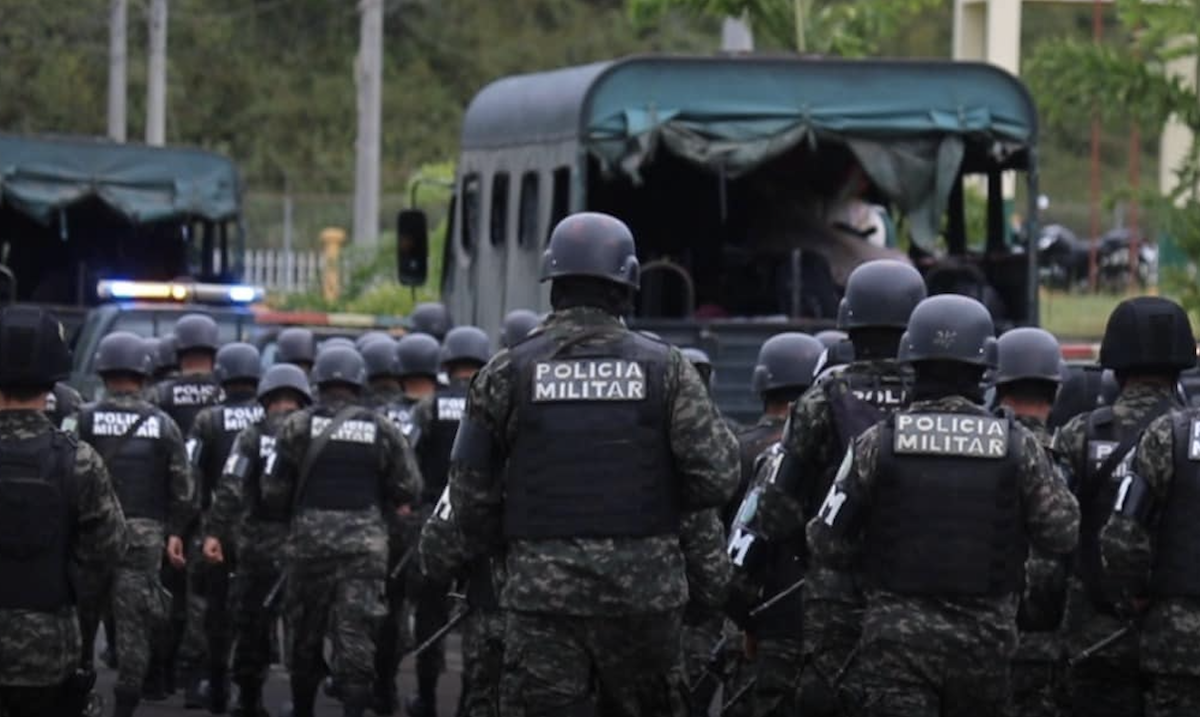On November 24, Honduras President Xiomara Castro declared a state of emergency in response to extortion. It follows cases of gangs demanding protection money from bus drivers, taxi drivers and store owners, and burning vehicles or killing people if they don’t pay. Castro, a leftist, became the first woman to hold the country’s presidency when she took office in January. She had pledged to demilitarize policing and fight corruption, with Honduran law enforcement implicated in extrajudicial killings and other human rights abuses.
According to Reuters, the emergency declaration would suspend certain constitutional rights in impacted areas. It includes deploying up to 20,000 cops, anti-money laundering measures, and “security controls” on roads. Those latter measures take effect immediately, although Congress must approve any changes to constitutional rights.
On November 27, Honduras mobilized 600 military police officers on its borders with El Salvador, Guatemala and Nicaragua, according to Agence France-Presse. A military police spokesman said this is to prevent “members of criminal structures” entering Honduras, especially from El Salvador.
Castro’s declaration hands more power to police forces implicated in corruption and atrocities.
President Castro’s move has been compared to that of El Salvador President Nayib Bukele, who in March 2022 declared a state of emergency in response to a surge in homicides. By June, Amnesty International reported that El Salvador’s government had committed “massive human rights violations,” including arbitrary detentions and torture, and counted 18 deaths in custody.
Castro’s declaration hands more power to police forces implicated in corruption and atrocities. In July, an investigation by Honduran journalists found that military police and the National Anti-Gang Police Force had committed murders, carried out torture, accepted bribes, obtained false convictions and collaborated with the powerful MS-13 gang.
Despite her promise to rely more on the civilian National Police in security operations, Castro has ordered military police to work alongside them, Al Jazeera reported. Her administration has specifically deployed the force to address drug trafficking.
The people of Honduras face many interlinked crises that date back decades. In July 2021, its government estimated that 73.6 percent of households were living in poverty. And in 2018, the country suffered nearly 40 homicides per 100,000 people—second only to El Salvador in the world that year.
The violence, much of it related to the drug war, is fueling an ongoing migration crisis, as many people flee the country to seek asylum or refuge. According to the Brookings Institute, Honduran family apprehensions at the US border skyrocketed from just over 500 in 2012 to 188,368 by 2019. This rapid rise “is driven by persistently high levels of violence coupled with sharp increases in food insecurity,” it said.
The global drug war drives violence in Honduras, as in many other places.
Honduras shares these crises with its regional neighbors. The Council for Foreign Relations explains that more than one in four migrants to the US border in fiscal year 2022 came from Honduras, El Salvador or Guatemala. It cites decades of civil war, political instability and violence in these countries as causes.
The global drug war drives violence in Honduras, as in many other places. Drug trafficking there has become more lucrative—and dangerous—as the Mexican government’s militarized war on traffickers in the 2000s pushed trade routes further south. Honduras is a strategic country for drug shipments, because of its long coastline and sparsely populated interior. Drugs that arrive from South America then pass over its northern border into Guatemala. The inherent instability of the unregulated markets prohibition creates has deadly consequences.
“Increasing competition over routes and the arrest or killing of top traffickers has splintered some criminal groups, empowering new, often more violent figures,” read a 2014 report from the International Crisis Group.
President Castro’s police mobilization is likely to make things worse.
Photograph by Military Police of Honduras via Facebook




